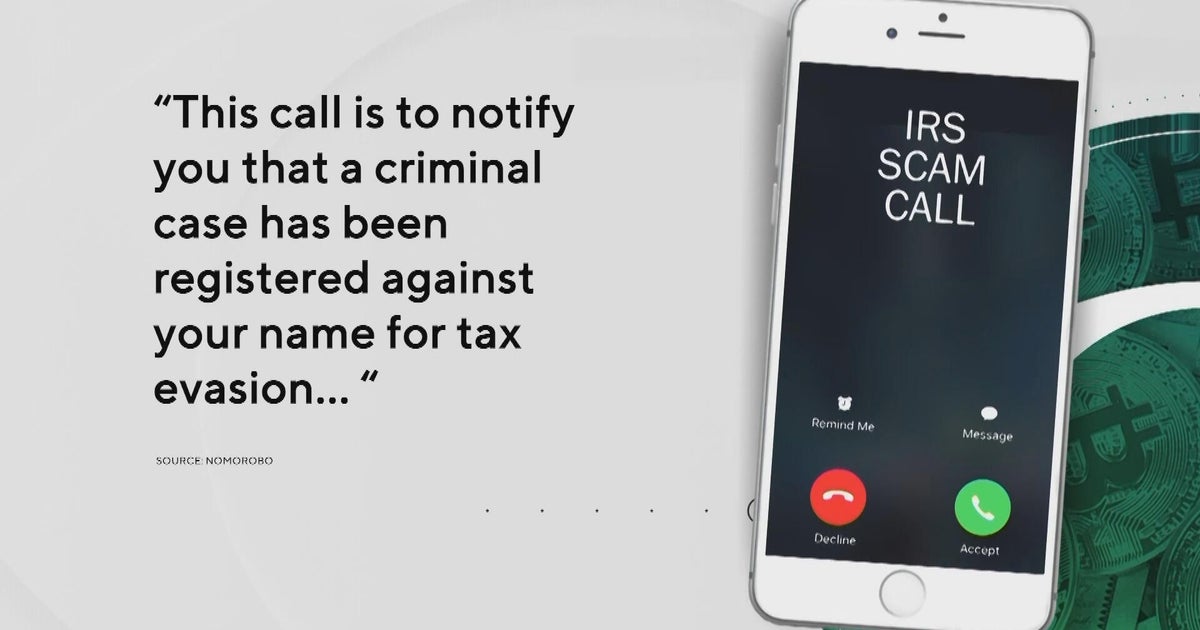Bombarded by scammy robo-texts? You're not alone.
Fraudulent text messages are soaring, deluging Americans with scams ranging from false claims that a person's bank account has been frozen to online orders not being delivered, a consumer advocacy group has found.
Over the last year, the number of robo-texts in the U.S. has soared from about 1 billion per month to 12 billion, the Public Interest Research Group, a nonprofit research organization, said in a new report.
The flood of robo-texts comes as regulators finally make headway against robocalls, which for years have been the No. 1 complaint among phone users. Between June 2021, when new laws for phone carriers took effect, and June 2022, robocalls fell from 2 billion to 1 billion a month, PIRG found.
"Especially the scam robocalls, the ones that are most dangerous, have dropped about in half from a year ago. That's definitely good news," said Teresa Murray, consumer watchdog at PIRG. "There are some things that are finally being done in Washington to try to dig deeper and go after the bad guys."
Cracking down works
According to PIRG, several factors are responsible for the drop in robocalls. The Federal Communications Commission last year started requiring telecom providers to verify calls made on their networks. As a result, nearly 2,000 carriers have installed software that detects and drops spoof calls.
The FCC is also going after carriers it says are dragging their feet on robocall enforcement — the agency sent out 18 cease-and-desist letters in March and referred two carriers to its enforcement bureau for not moving quickly enough to comply with the new requirements.
Cell phone carriers are also doing a better job identifying and marking potential spam, PIRG found. In fact, the rise in robo-texts is partly a response to the limited success that regulators have had going after robocalls.
"The new nightmare"
Robo-texts are easier for scammers to generate because they can be emailed and don't even require a phone number. They can also be effective, according to PIRG's report, which calls such texts "the new nightmare."
Instead of seeking to bait recipients by telling them that they had won a prize, once a common scam, many robo-texts now use language similar to actual bank or retailer notifications. Scammers often create dedicated landing pages that resemble bank websites, while texts may appear to come from a local phone number, the group found, citing several examples purporting to be from Citibank.
"Your Citi-debit card is under review, please verify your contact info. CitiSecured05.com," read one spoof text. Another declared: "Citi #7361:Your online access has been locked. Please verify your info here [URL] to regain access."
Other scam messages tell recipients that a package is about to be delivered or asks them to confirm information about an Amazon order. These texts, like phishing emails, try to lure a recipient into clicking on a link and giving up financial information. In another scheme, recipients got text messages purporting to be from their pastor and encouraging them to buy iTunes gift cards as a way to supposedly donate to a cause the church was supporting.
According to Murray, robo-texts are potentially even more dangerous than calls.
"There's less information for you and me to use to decide if it's legitimate or fraudulent," she said. "With a phone call, I would argue, a lot of times you might have a few extra seconds to process, or you can tell that it's coming from a boiler room, or you can tell if the person can't even pronounce 'Wells Fargo' properly."
Billions in losses
In 2021, consumers lost nearly $30 billion to phone scams, according to the National Consumer Law Center. Scam texts cost another $10 billion in losses, according to RoboKiller, an anti-spam company. Automation has made these scams cheap to perpetrate, while criminals need to snare just a handful of victims to make the crime worthwhile.
"These computers are set up to make thousands and even millions of calls," Murray said. "They don't need to have a really high success rate — they only need one, two victims a day."
For now, the FCC doesn't regulate robo-texts, but that could change if the commission votes on a proposal to crack down on these scams, which Chair Jessica Rosenworcel introduced in October.
PIRG thinks federal regulators could do much more to eliminate robocalls. For instance, it could crack down on carriers that deliver robocalls from abroad. PIRG also supports legislation to make robocall tracing information public, allowing consumers to see where these calls originate from and which companies put them through. The group wants carriers to proactively block calls that they identify as probable spam — something that most carriers don't do, though they are legally entitled to.
"This has been a huge problem. It's been at the top of the FCC's complaint files for years and years and years," Murray said, noting that unwanted robocalls have been illegal since 2009 — more than a decade before federal regulators started cracking down.
"How many years have to pass, how many thousands more people have to be hurt by robocalls, for something more to happen?"







